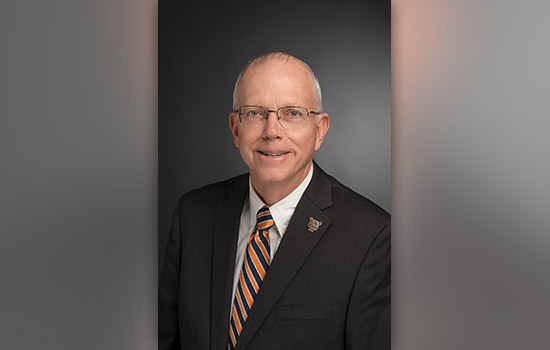Creating critical thinkers
Elizabeth Lamark
Learning about RIT and its rich history allowed me to be both reflective and forward-thinking during my recent inaugural remarks. Let me share with you some of those thoughts.
The path to major success in business and industry now relies more than ever on creativity and innovation. This is a product of the Digital Age, where change is rapid, information is instantly available and nations and economies are globally interconnected.
We live in one world and, across the planet, we share both problems and opportunities. Issues that come to mind are poverty, nuclear nonproliferation, global warming, sufficient clean water, renewable energy and affordable health care. Although technology can help in solving these problems, much of the solution, maybe even most of the solution, will not be technical. In many cases, we already have the technology, or at least much of what we need. But we may not have the political and social answers, or the leadership and willpower.
Of course, new technology often brings new challenges. Think about the future, when it will be possible to have your genes edited to make a better you. In what cases will this be ethical? What might be the societal risks? With progress in artificial intelligence and robotics, how long will it be before we humans are routinely interacting with machines in very complex tasks? Will we humans always be in control?
What kind of education should our students receive in order to help answer some of these questions and thereby contribute to guiding the future of society? Clearly, we need strengths in science and technology, but we must go beyond the purely practical. According to a World Economic Forum report released in January 2016, by year 2020 about a third of employment skills that were considered important in 2016’s workforce will have changed.
The forum’s report says the top three skills for 2020 are complex problem solving, critical thinking and creativity. The forum also highlights collaboration, emotional intelligence, judgment, service orientation and cognitive flexibility.
What does this mean for a student here at RIT? As a starting point, each student should choose a discipline for which he or she has a passion. And then, no matter which discipline is selected, the student should learn about and gain experience in critical thinking, problem solving, creativity, innovation, collaboration, communication and other high-level skills. This calls for experiential learning, including co-op and summer jobs, international experiences, participation on project teams, entrepreneurship, research and participation in student groups in and out of the classroom. Maintaining RIT’s steep upward trajectory will be made possible by working across disciplines to help solve the most pressing issues of our time and by offering an education that embraces the future. We must continue to rethink our educational systems so that we are building a broad, multidisciplinary skill set where creativity is exercised at every turn.
Let’s double down on making our campus a thriving ecosystem to stimulate creativity and innovation, which is the translation of an idea into a product, service or process that has economic or social value. Let’s get busy creating and innovating!
Yours in Tiger Pride,
David Munson, President
www.rit.edu/president
@RITPresident
To read President Munson's full inaugural address, go to http://bit.ly/RITinauguration.










